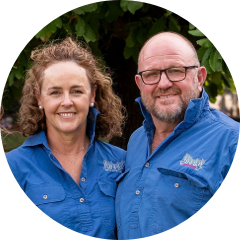Machine learning for managing soil constraints
Term
2023-2025
Project Officer
Jane McInnes
WHY THIS PROJECT IS NEEDED
This project aims to find the best ways to manage multiple soil constraints such as sodicity, acidity, and salinity to help farmers make informed soil management decisions to maximise productivity and profitability.
While there are different ways to manage constraints in isolation, it is difficult to know which method to use and when, due to high variability in the responsiveness of soils to ameliorants where multiple soil constraints exist.
In short: The project uses data and a computer-based approach to predict which management and amelioration practices will work best for a particular soil, to enhance soil productivity and profitability for farmers.
Project focus
To address this, the project is developing and testing a computer-based approach (using a knowledge-guided machine learning framework) that incorporates scientific understanding and learnings from existing data. This will then be used to predict which combinations of soil management will work best for a particular soil that is affected by multiple constraints, under specific weather and farming conditions.
This project will also standardise and use data from published studies and past/current experiments conducted by Soil CRC participants to ensure that the data will be findable, accessible, interoperable, and reusable.
Full project title: Knowledge-guided machine learning optimisation of soil constraint management
Find out more
For further information about this project, please contact Riverine Plains Senior Project Manager, Jane McInnes at jane@riverineplains.org.au
Project investment
This project is funded by the CRC for High Performance Soils Limited (Soil CRC).
Partners
This project is led by the University of Southern Queensland (USQ).
Project Participants include Riverine Plains, Burdekin Productivity Services Limited, West Midlands Group and Mallee Sustainable Farming.
Focus areas
MORE ON Soils
Our research enhances food production, increases environmental resilience and improves community connection across the Riverine Plains. See how our research creates impact.
-
Soils
Sustainability
-
Soils
Sustainability
-
Soils
Grains
-
Soils
Sustainability
-
Grains
Soils
-
Soils
Grains
-
Grains
Soils
-
Soils
Grains
-
Soils
Sustainability
-
Soils
Sustainability
-
Grains
Soils
-
Soils
Grains
-
Soils
Climate
-
Soils
Climate
-
Grains
Soils
JOIN RIVERINE PLAINS
Riverine Plains provides opportunities to see new research and innovation, connect with rural communities, and attend informative events.


